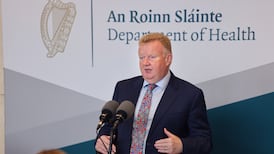Nearly one-third of men and up to a quarter of women will die after they suffer a fracture, warns a leading physician who has called for a State-led effort to encourage people to have stronger bones.
“Kids in school are being made aware of Ebola and colon cancer, but there is nothing for osteoporosis. Kids should be made aware of healthy bones,” said consultant physician and NUI Galway Prof John Carey.
“A fracture is like a heart attack, the damage is done. And after that the genie cannot be put back in the bottle,” said Prof Carey, speaking ahead of World Osteoporosis Day.
There is a major lack of awareness and information surrounding osteoporosis in Ireland and the issue is being ignored by the Government, he said, adding there needs to be “top-to-bottom reform”.
Between 35,000 to 48,000 fractures occur in the State each year, with between 20 and 25 per cent of women admitted to hospital following a bone fracture dying, rising to as high 33 per cent for men.
Detection system
He said research suggests that about 3,000 deaths related to fractures are recorded in Ireland annually and that “the detection system for people with fractures is poor. Less than 20 per cent of people who are admitted to hospital with this issue leave with a proper diagnosis. That is something that needs to change urgently.”
Fractures leave their mark on the health service also, he said. And he noted that the number of days spent in hospitals by patients rose by 43 per cent between 2008 and 2017, but the days for other illnesses fell.
“The numbers of people being admitted to hospital with bone fractures is similar to those being admitted with Covid, with roughly the same mortality rate, with 50 per cent of people who break their hip failing to recover,” he said.
More resources must be put into better diagnoses of injuries, while there must be greater use of bone density assessments and blood tests, said Prof Carey.








